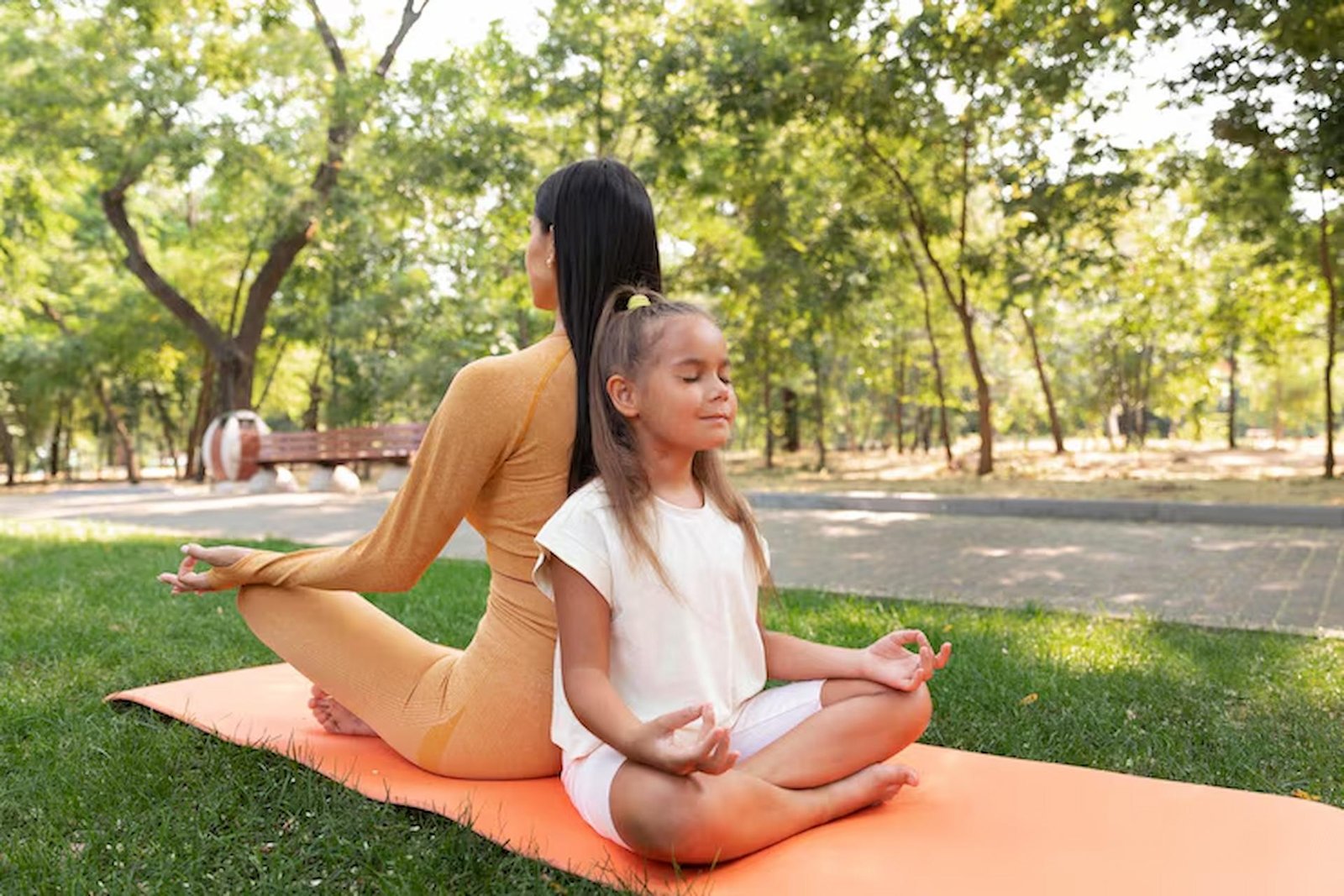Key Takeaways
- Mindfulness enhances emotional regulation, allowing individuals to manage stress and difficult emotions more effectively. This is vital for facing life’s challenges with greater resilience.
- Regular mindfulness practice improves cognitive flexibility, which means shifting perspectives and adapting more readily to unexpected changes or adversity.
- Incorporating mindfulness into daily routines can improve overall well-being, emotional resilience, and quality of life.
Table of Contents
- Introduction
- Understanding Mindfulness and Resilience
- The Science Behind Mindfulness and Resilience
- Practical Mindfulness Techniques for Building Resilience
- Incorporating Mindfulness into Daily Life
- Benefits of Mindfulness for Emotional Resilience
- Conclusion
Introduction
In our rapidly evolving world, building resilience—the capacity to bounce back from setbacks and grow through life’s challenges—has become a helpful trait and a necessity for well-being. As the pace and complexity of modern living continue to increase, stressors of all kinds can leave us feeling overwhelmed, anxious, or burned out. Enter mindfulness, or the art of paying purposeful attention to the present moment with openness and curiosity. Far from being an abstract or niche concept, mindfulness is a proven and accessible tool for cultivating resilience in daily life. Individuals can practice mindfulness independently, through group workshops, or in evidence-based mindfulness therapy training programs. Regardless of how it’s learned, integrating mindfulness into everyday routines can empower anyone to face adversity with greater confidence, emotional clarity, and adaptability.
By weaving mindful awareness into our routines, we equip ourselves to manage and reduce stress and develop the inner psychological resources needed to thrive—even when circumstances are complex or unpredictable. When we become more attuned to the present, we notice patterns, understand our reactions, and are less likely to be swept away by automatic negative thinking. Mindfulness therefore doesn’t just help us feel calmer in the moment; it acts as a foundation for long-term mental strength and resilience, no matter what life throws at us.
Understanding Mindfulness and Resilience
Mindfulness is more than just a quick relaxation technique; it is a robust, research-backed psychological resource that empowers individuals to become keenly aware of their thoughts, feelings, and bodily sensations—without being controlled or overwhelmed by them. Essentially, mindfulness involves noticing whatever is happening in and around you, as it happens, with acceptance. Resilience is the ability to withstand, adapt, and recover from hardships while maintaining reasonable mental and emotional stability. These two concepts are deeply interconnected, as mindfulness serves as an anchor, helping people stay grounded amid chaos and uncertainty. By recognizing and observing stressors with some distance—rather than reacting impulsively—mindfulness lays the groundwork for resilience. This enables us to respond to adversity with greater wisdom, resourcefulness, and perspective. For example, when faced with difficult emotions or unexpected changes, mindfulness helps interrupt habitual patterns of worry, rumination, and self-criticism, opening space for creative problem-solving and self-compassion. According to the American Psychological Association, mindfulness practices can reduce symptoms of anxiety, depression, and even chronic pain, creating a foundation for healthier, more adaptive reactions to stress over time.
The Science Behind Mindfulness and Resilience
Decades of scientific research now support mindfulness’s positive and lasting impact on the brain and resilience-building. Modern brain imaging has shown that mindfulness meditation promotes neuroplasticity, the brain’s ability to rewire by forming new neural connections throughout life. When people regularly practice mindfulness, studies show increases in gray matter density in areas responsible for emotional regulation, attention control, empathy, and sensory processing. For instance, an eight-week mindfulness training was found to cause remarkable changes in the insula and prefrontal cortex—brain regions linked to awareness, emotion management, and high-level decision-making. This means mindfulness doesn’t just change how we feel; it builds the brain structures that help us respond to challenges more skillfully.
Another important finding is that mindfulness meditation consistently calms the amygdala, sometimes called the brain’s “alarm center.” The amygdala is responsible for our fight-or-flight responses when we perceive threats, but a constantly activated amygdala is also linked with chronic anxiety, irritability, and reactivity. Mindfulness helps tone down this alarm response, making it easier for practitioners to experience less emotional reactivity and more cognitive flexibility under challenging situations. Over time, this means building a capacity to navigate day-to-day stress, disappointments, and even crises with more composure and less overwhelm.
[suggestion]A calm person sitting cross-legged, eyes closed, surrounded by gentle, abstract waves or shapes representing calm and resilience.[/suggestion]
Practical Mindfulness Techniques for Building Resilience
You don’t need special equipment or extensive training to begin building resilience through mindfulness. Here are practical mindfulness exercises anyone can add to their daily life, which are supported by research and clinical practice:
- Mindful Breathing: Set aside a few moments to take slow, deep breaths, focusing your attention entirely on your inhalations and exhalations. When your mind wanders, gently bring it back to the sensation of breathing. This disrupts the cycle of stress and grounds you in the present moment.
- Body Scan Meditation: Methodically shift your attention from the top of your head to your toes, noticing any sensations, tightness, or discomfort. When you recognize tension, invite your body to soften and release it with each breath. This enhances embodiment and self-knowing.
- Loving-Kindness Meditation: Take a few minutes to cultivate goodwill toward yourself and others. You can do this by silently repeating phrases such as, “May I be happy; may I be healthy; may I live with ease,” and extending these wishes to people you know and all beings. This practice helps diminish negative self-talk and builds empathy, an essential resource for resilience.
- Mindful Movement: Engage in yoga, tai chi, or stroll while fully attending to the rhythm of your breath and the sensations throughout your body. Moving mindfully reduces stress hormones, elevates mood, and reminds us of our capacity to move through challenges literally and figuratively.
- Gratitude Journaling: At the close of each day, write down at least three things you’re grateful for, no matter how small. Focusing on gratitude changes your perspective and strengthens the positive mental states needed to sustain emotional resilience.
Even brief, consistent practices like these foster a more profound sense of self-efficacy—the belief in one’s ability to meet challenges head-on—and provide concrete tools for responding adaptively to adversity.
Incorporating Mindfulness into Daily Life
Developing a mindfulness routine isn’t about forcing yourself to meditate for hours; it’s about bringing intentional awareness to your everyday experiences, even just for a few minutes. Starting with five minutes of mindful breathing, body scan, or movement each day can make a noticeable difference in handling stress and uncertainty. Setting gentle reminders to pause and breathe can gradually train your attention and help embed mindfulness habits into your schedule.
You can also practice mindfulness by bringing present-moment awareness to otherwise routine activities—such as eating, commuting to work, or washing dishes. Notice textures, flavors, sounds, and feelings without rushing or multitasking. Over time, this cultivates a greater ability to stay steady and thoughtful, even during busy or stressful periods. Incorporating a body scan or mindful journaling session before bedtime supports emotional processing and has been shown to improve sleep quality. For those seeking more support, community classes and online mindfulness groups can provide encouragement and accountability to help you remain consistent in your practice, especially during demanding times.
Benefits of Mindfulness for Emotional Resilience
Mindfulness strengthens emotional resilience in several closely related ways, each backed by research and personal testimony:
- Present-Moment Awareness: By focusing on what is happening now, mindfulness reduces the pull of excessive worry and overthinking about the past or future, both of which fuel anxiety and emotional exhaustion.
- Emotional Regulation: Mindfulness trains us to observe our emotions without judgment. This makes it easier to respond thoughtfully rather than react impulsively, helping break cycles of stress and frustration.
- Self-Awareness: Regular practice increases insight into emotional triggers and habitual patterns, giving us more choice and flexibility in acting and interacting with others.
- Acceptance: Mindfulness encourages openness and acceptance, teaching us to experience thoughts and feelings without resistance or avoidance. Research shows this nurtures a balanced internal state, which is critical for resilience.
Global research on mindfulness-based interventions consistently highlights their positive impact on mental health and emotional resilience. Individuals who engage in regular mindfulness practice often experience reduced stress, improved focus, and enhanced mood stability. These benefits are evident across diverse groups, including students navigating academic pressure, professionals managing workplace demands, caregivers facing emotional burnout, and those coping with long-term health conditions. By fostering greater self-awareness and emotional regulation, mindfulness empowers people to navigate challenges more effectively and maintain a stronger sense of balance and well-being in everyday life.
Conclusion
Cultivating resilience is not a one-time achievement but a continuous journey that evolves through life’s challenges, setbacks, and personal growth. Mindfulness provides a grounded, accessible approach to developing this essential quality. Whether through simple breathwork, journaling about daily gratitude, or participating in supportive community circles, mindfulness helps individuals reconnect with the present moment and shift their responses to stress. These practices encourage emotional flexibility, allowing us to adapt without being overwhelmed. By becoming more aware of our thoughts and feelings without judgment, we learn to pause, reflect, and choose more constructive reactions. This awareness builds a mental and emotional buffer, empowering us to face adversity with greater clarity and courage. Over time, consistent mindfulness cultivates a sense of calm confidence, helping us stay centered even amid uncertainty. The result is not only improved mental health but also a deeper sense of purpose and connection—to ourselves, others, and the ever-changing world around us.





